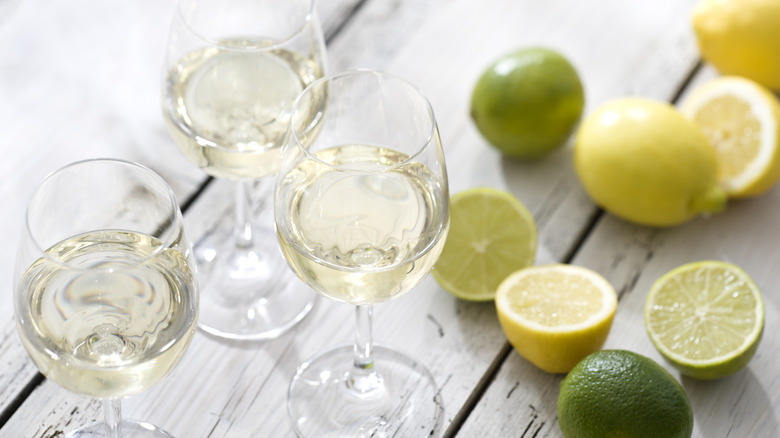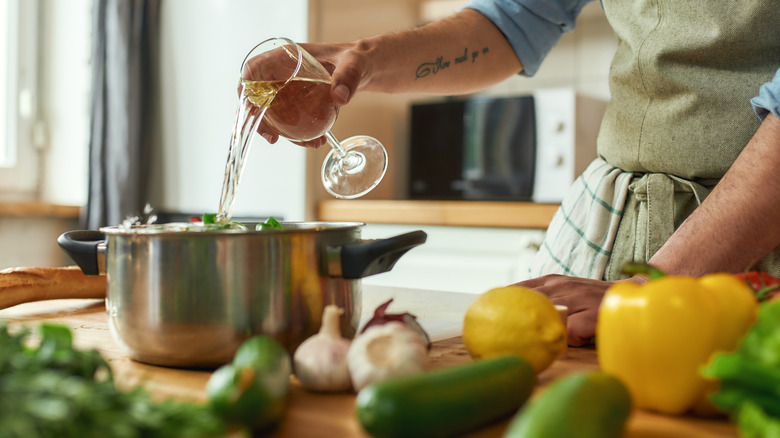Here's How To Swap White Wine With Lemon Juice In Savory Recipes
Many savory recipes aren't complete without a splash of white wine to brighten things up. It has a crisp taste that cuts through proteins while simultaneously adding depth and flair to food. While it's unthinkable to make certain dishes without it, lemon juice is a worthy substitute for the times you're out of white wine.
If there's one thing many major types of white wine have in common, it's a tart, slightly sweet flavor. Although the sweetness varies with each type, they're crisper than reds and are definitely what you want when you're after something refreshing — just like lemons. The fruits are on the not-too-sweet side of the citrus family and are always the first choice to give food a tart boost. Sweet tea, lobster, and pasta salads are renewed with a bit of lemon, just like white wine does for savory dishes like clams, linguine, and chicken. Plus, certain white wines like Moscato and Chardonnay have lemon-tasting notes.
Their biggest discrepancy, however, is the sheer amount of tartness that lemons have. The fruit's bite is more intense, so it'll need to be diluted with water. One cup of white wine can be replaced with a ½ cup of lemon juice and a ½ cup of water. If you don't want the acidity to be too strong, you can opt for a ¼ cup of lemon juice with water rounding out the remaining ¾.
How to match the tasting notes of white wine with lemon juice
Diluted lemon juice captures the essence of white wine well enough to be a substitute in food. It balances out the richness of a parmesan risotto and brightens up pasta perfectly. However, if you use white wine in your cooking for its tasting notes, you'll need more than citrus alone.
An easy way to mimic your wine's flavor profile is with herbs and spices. Sauvignon Blanc, one of the best white wines for cooking, has a bright, fruity flavor with an herbaceous, spicy touch. While lemon juice covers this first element, some ground tarragon, nutmeg, and clove can be stirred into the dilution to bring more depth to the wine swap. Vermentino is another delicious option; it's rife with citrusy flavor, has floral and herbaceous notes, and a slight mineral nuance. Lavender and thyme can take care of the grassy parts, while a pinch of sea salt mimics Vermentino's briny taste.
In conjunction with lemon juice, fruit tea also makes a good replacement for white wine. Black tea is already an unexpectedly good substitute for red wine, so a lighter tea would work for whites. Pinot Grigio has a dry, fruity flavor that can be replicated with some pear or nectarine tea and lemon juice. Unoaked chardonnay also has a touch of pear, with stone fruits and floral notes bringing in more refreshing flavor. Juicy and floral-like, peach tea with lemon juice emulates the crispness of chardonnay.

